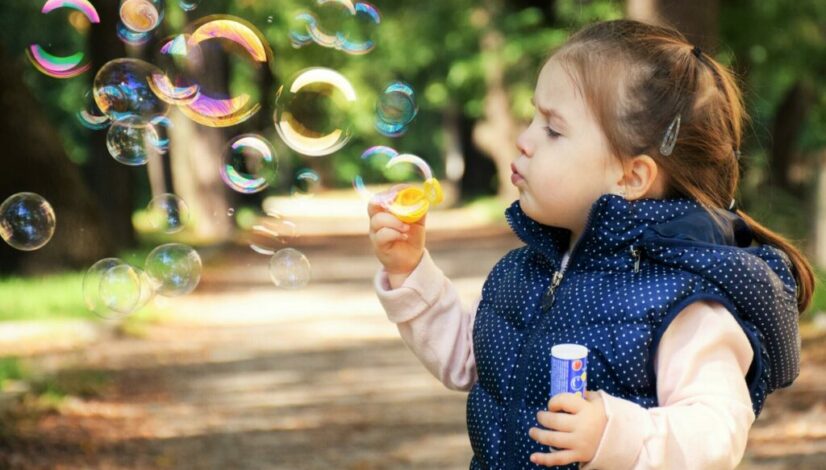The First Signs: Recognizing Autism in Your Child
Ever wondered if the unique behaviors of your children could be early indicators of autism?
For many parents, spotting the early signs of autism in their child can feel scary and confusing. Autism impacts how the brain develops in different ways. ASD brings its own set of challenges and strengths for each person.
Autism is something a person is born with, and it stays with them throughout their life. It’s not something they catch or something that can go away. While there’s no cure for autism, there are ways to help kids with autism learn new skills and cope with challenges.
Recognizing the early signs is crucial to provide the best support for your child. In this article, we’ll help you identify the ten early signs of severe autism in children and further understand its impact. Read on to discover more.
Avoiding Direct Eye Contact
One of the earliest signs of autism in children is avoiding direct eye contact. Children usually look at their parents’ eyes to connect with them and show interest. However, kids with autism might not do this as often.
This makes it hard for them to talk or play with others like other kids do. Eye contact is important in building rapport and understanding social cues. So, limited eye contact can also be misunderstood by others as a lack of interest or being distant, adding more social challenges.
Delayed Speech or Language Skills
Delayed speech or language skills are common indicators of autism in young children. Every child develops at their own pace. Some children take longer to reach speech or language milestones.
However, in the context of autism, these delays are more prominent and persistent throughout their development. For instance, some children with severe autism may even remain nonverbal throughout their lives.
Others may have limited speech. They sometimes rely on using gestures, pictures, or assistive devices. These impact their ability to express needs, share experiences, and engage in social interactions.
Delayed Motor Skills
87% of people with autism experience motor difficulties. This could range from having trouble with handwriting or struggling to jump, skip, or hop.
Some children with autism might also take more time to learn how to move their bodies. This means they might start crawling, walking, or catching a ball later than other kids. These differences in learning skills can vary from child to child, with some differences being easy to see and others not as obvious.
Difficulty With Social Interaction
Children with autism often struggle with social interaction and understanding social cues. They may prefer solitary play or have challenges forming friendships with peers. Difficulty interpreting facial expressions, and emotions, or understanding social norms are common signs.
Difficulty with social interaction can also manifest in different ways. People with autism may become non-verbal in social groups, or even dominate the conversation with a singular topic. Some also have trouble grasping the context of certain situations.
Sensory Sensitivities
Sensory sensitivities are common in individuals with autism. Which can involve hypersensitivity or hyposensitivity to various sensory stimuli. Children with ASD may be sensitive to loud noises, bright lights, or certain smells.
This can cause discomfort and distress. However, some children may seek sensory stimulation, such as spinning or jumping. They use these sensory stimulations to make themselves feel more comfortable.
This is also known as “stimming.” Stims are not always movement-related, either. Some children develop vocal stims, like humming or repeating a certain word or phrase.
Intense Emotional Reactions
Children with autism often experience heightened sensitivity to their surroundings. This can sometimes lead to intense emotional reactions that may seem disproportionate to others. Everyday stimuli that might appear normal can be overwhelming for children with autism.
For example, a seemingly normal sound or texture that goes unnoticed by most people might be distressing for a child with autism. This distress could manifest as anxiety, frustration, or even meltdowns.
Repetitive Behaviors
Repetitive behaviors are hallmark symptoms of autism spectrum disorder. These behaviors can manifest in various forms, such as rocking back and forth or repeating phrases or actions. They may also use repetitive behaviors as a way to self-soothe or cope with sensory sensitivities.
For some children with autism, this is how they express their emotions.
Rigid Behavior Patterns
Children with autism can integrate strict routines into their daily activities. These children may have a strong preference for specific foods, clothing, or activities. They may become upset or distressed by changes in routine or not getting what they like.
It’s essential to understand the difference between these rigid behavior patterns from OCD. In autism, these behaviors help manage sensory sensitivities and the need for predictability. In contrast, in OCD, these behavior patterns stem from intrusive thoughts and anxiety.
Unusual Interests or Fixations
Many children with autism develop intense fixations on specific topics or objects. These fixations can fully consume their thoughts and conversations. Having hobbies is normal, but for children with autism, these hobbies can be hyper-fixations.
Difficulty With Transitions
Transitions can be challenging for children with autism, as they may struggle to adapt to changes in their routines. Transitioning between activities, environments, or tasks may provoke anxiety or resistance. This struggle to adapt can manifest in various ways, such as increased stress and frustration due to difficulty in communicating their emotions.
Do You Suspect Your Child Might Be Exhibiting Signs of Severe Autism?
Recognizing the early signs of severe autism in your child is the beginning of a journey filled with learning and growth. Having a deeper understanding of early signs of autism can also help you be more proactive in seeking evaluation and support for your child. Keep in mind that every child with autism is unique, and their journey may have unexpected turns.
Are you seeking expert advice and guidance on autism spectrum disorder? Look no further than Developmental Pediatrics; whether you’re seeking advice, help, or consultation, our experienced professionals are here to assist you every step of the way.
Contact us and take the first step towards understanding and supporting your child’s journey.



